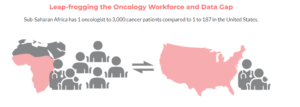
Two Cancer-Fighting Startups Gain a Foothold in AWS
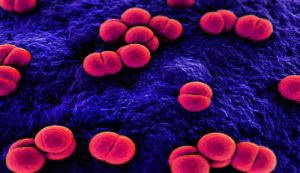
(SciePro/Shutterstock)
The cloud is a natural place for startups that have large computing and data storage needs but also have uncertain futures. For two startups aiming to stop cancer, including Lyell Immunopharma and Hurone AI, the public cloud run by Amazon Web Services is an ideal place to incubate their promising yet unproven new technologies.
Lyell Immunopharma was founded in 2018 with the goal of developing a process for manufacturing customized cell therapies that treat cancer. This type of cell therapy has found some success with blood cancers, and Lyell is one of the first startups to see if it can help in the treatment of solid cancer tumors, too.
The San Francisco-based biotech has developed a promising method to reinvigorate an individual patient’s T-cells to turn them into cancer-killers. As part of its Phase 1 clinical trial, Lyell built a 72,000 square-foot manufacturing facility in Bothell, Washington, where it can put its proprietary cell reprogramming technology to the test.
Manufacturing custom cell therapy is difficult enough, but meeting the regulatory demands of the U.S. Food and Drug Administration makes it even tougher. To ensure that it’s not only developing a quality product that fights cancer but also meeting the FDA’s safety standards, Lyell must collect and process a significant amount of data, said Elizabeth Homans, Lyell’s CEO.
“There’s lots of handoffs from different stakeholders,” Homans told Datanami. “There’s lots of activity at the manufacturing plant. There’s application of genetic and epigenetic reprograming technologies, there’s adhering to regulatory specs, there’s quality control, which takes a ton of time.”
That is where AWS comes in. While the new plant was under construction during the COVID-19 lockdowns, Lyell worked with AWS to ensure that it could collect and process data from every step during the manufacturing process, said Homans.
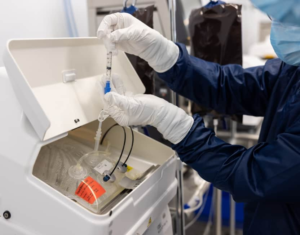
Lyell Immunotherapy develops customized cancer therapies by training a patients’ own cells (Image courtesy Lyell Immunotheraphy)
“With AWS, they helped us get visibility data on every step of that process,” Homans said in an interview at the re:Invent conference two weeks ago. “What we were able to do with them was take advantage of their deep knowledge of Internet of Things so that we could capture all of the data from electronic platforms–bioreactors, all of the equipment, all of the instruments at the manufacturing facility–and get data on what’s happening to those cells every step of the way.”
All the data from the manufacturing lines is collected digitally (the Bothell LyFE Manufacturing Center is the first cGMP-certified plan to be paperless) and uploaded in real time to Lyell’s data cloud running in AWS. The ability to store all the data from the manufacturing plant in the same place where it’s storing data from the research and clinical development organization will be critical to Lyell’s success, Homans said.
“That means we have this giant library of data that helps us understand not just what’s going on with that particular batch and that particular patient’s cells, but we can do correlative analyses and say ‘How does that compare to what we saw in research? How does that compare to an engineering run that we did when we were filing our IDN [investigational new drug application]?’” she said. “Understanidng the biology of our cells is paramount because that can help us develop better therapies.”
Having all the data in a standard format on the data lake also eliminates the need to go through multiple steps to run analysis. At a previous biotech Homans worked for, researchers were hamstrung in getting answers to questions because of the need for extensive data manipulation.
“When you wanted global data, it was sometimes hard to get that data because they didn’t talk to each other. Everything had to go up and come back down through some sort of umbrella protocol, so you can actually combine the data from all of the different systems, and it’s really kludgey and clumsy and it takes a long time,” she said. “What you don’t want to be doing is gathering together five Google spreadsheets…and then have to try and mash them together.”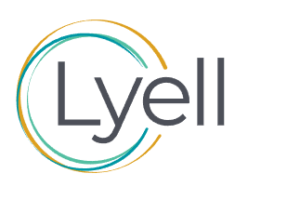
In addition to helping set up the data architecture, AWS also provided some guidance on how to build the facility to be amenable to rapid data collection. Lyell participated in an AWS workshop called “The Art of the Possible” that encouraged participants to “jettison everything you used to think you knew about building a manufacturing facility,” Homans said.
The good thing about cell therapies, from the point of view of biotech (and its investors; it’s a public company), is that you find out fairly quickly whether the treatment is effective or not. If either one of the two Phase 1 trials that Lyell is conducting is successful, the company wants to be prepared to move forward quickly, possibly even with a pivotal phase 2. AWS has helped ensure Lyell will be ready, Homans said.
“It’s important that you’re ready and not mucking around with your system and trying to get that right,” she said. “Because if you’re successful, you really don’t want to lose time. At that point, patients quite literally are waiting, so you want to get to market as quickly as possible.”
Better Cancer Outcomes for Africans
Another startup trying to put cancer in its place is Hurone AI, a Seattle, Washington-based company that is building an AI-assisted application that can help oncologists in sub-Saharan Africa better detect and treat cancer.
According to Hurone AI founder and Chief Strategist Kingsley Ndoh, there is one oncologist for every 3,000 cancer patients in sub-Saharan Africa, versus one oncologist to about 150 cancer patients in the United States.
“One of the major challenges in cancer treatment is that patients do not have access to address symptoms or side effects of the therapies,” Ndoh told Datanami. “So what Hurone AI is doing at this stage is we’re providing a platform to be able to do that remotely and streamline the work of doctors.”
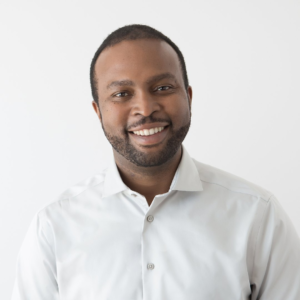
Hurone AI founder and Chief Strategist Kingsley Ndoh received his MD from the University of Jos and an MPH in Global Health from the University of Washington, where he is a faculty member in the Department of Global Health
Much of the field data in oncology is sourced globally. However, the majority of that data comes from white people of European decent, who suffer cancer at different rates and of different types than black people of African descent, according to Ndoh.
For example, a study conducted in Nigeria in collaboration with the Memorial Sloan Kettering Cancer Center in New York found that the median age of diagnoses for colorectal cancer in Nigeria is 49, Ndoh said. He pointed out that Chadwick Bosman, the black American who stared in four Marvel Comic movies as the Black Panther, was diagnosed with colorectal cancer at age 39, and died in 2020 at age 43, well before he would have been recommended for a screening.
“Nigerian medical professionals have always recommended to screen at 50 because they were using basically data from the United States and Europe,” Ndoh said at re:Invent. “It becomes important to do this sort of AI and data science work in Africa because that way you’re getting very valuable data where you can model and also personalize things like prevention or seeing several data points [from someone], like family history and recommend ‘Okay, you need to screen for this cancer now.’”
The lack of good clinical data from black people also shows up during the treatment regimen. For example, the drug taxane has shown to be an effective treatment of breast cancer for American women. However, black women were not getting the same level of success with the drug as their white counterparts, a West Virgina study has shown.
“What they found was African-American women in that study were less compliant with the drug because they had worse side effects that their Caucasian counterparts, and this was not documented in the clinical trials because obviously there were very few,” Ndoh said. “So those are the types of things that doing [work] in Africa could also help here in the United States to understand, since a lot of these people share genetics.”
Hurone AI is currently participating in randomized control trials to determine if its AI-powered approach to precision oncology is better than the standard of care. The company is not collecting individual genetics for the trial, but instead is using genetic data collected at the village level in Rwanda to inform its study.
Based on the results of that trial (which Ndoh said should come very soon), the company will determine whether to go forward with more funding, with the ultimate goal of offering an AI assist to oncologists in Africa.
For Hurone AI, running its data science workloads on AWS has been very helpful. The company has just five employees, spread across the world from Washington and California to Israel and Rwanda, so it was really impractical to set up and run an on-prem system.
Participating in the AWS Health Equity Initiative has also helped Hurone AI gain access to the computing resources that it needs. As part of the initiative, which was started in 2021, AWS has committed to giving $40 million over three years to organizations that promote health equity.
“At this stage, saving on $3,000 to $10,000 per month is huge,” Ndoh said. “That’s essentially what I would be spending on our cloud cost in Rwanda. So through the cloud credits, AWS have given us that leeway to run and scale quickly.”
Related Items:
Inside AWS’s New Supply Chain Planning Offering
AI ‘Fingerprinting’ Fights Back Against Hard-to-Detect Cancers
Why AI Has Yet to Deliver on Promises in Healthcare
Editor’s note: This article has been corrected. It is the drug class taxane that has side affects for African American women, not Atroxene. Datanami regrets the error.


